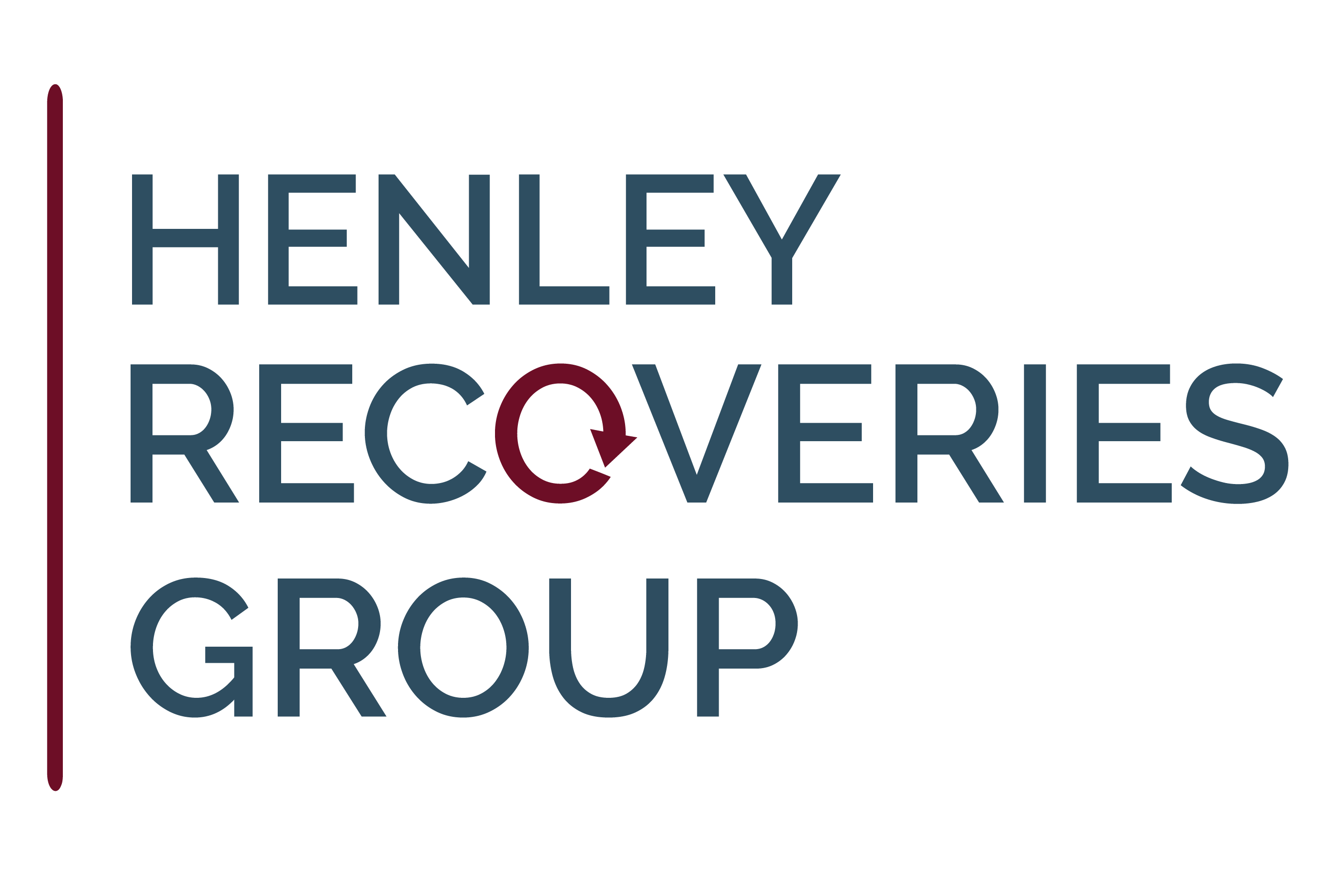
Free Protection, Free Debt Recovery
Of all time, 2% of all our clients have what I would consider, good protection.
TWO PERCENT
That’s 2 % of our clients who can put less energy into worrying about being paid for their hard work and more energy into doing what they do best.
Wait, debt recovery is free?
YES! This is our aim. We work to get income to feed our families but we do not need that income from you. How horrible does it sound to have to pay someone to chase an invoice which your client did not uphold? It’s the last thing you need, more money not in your pocket for a situation which shouldn’t exist. Shouldn’t your debtor be paying us because of their issues? No wonder Debt Collection can leave a bad taste in some people’s mouths.
We started this company to HELP businesses, not put you more out of pocket.
The legality of the debt recovery systems stops us from on charging costs to debtors in most cases unless our clients have sufficient protection in their contracts, quotes and invoices.
Wait, free protection?
We want you to be a part of this. We look over contracts and quotes to see how we can provide free protection for you. Let me be clear; we do not have a lawyers looking over your contracts in this service. If we did, we would need to charge an arm and a leg like other companies need to. To give sufficient protection for debt recovery, we don’t need to do that.
Our free service here provides with tools you need to make debt recovery and legal costs charged to your debtor. We do what we can to tailor this to your situation. It’s not just a generic list of every little thing you can use but also not a complete re-write of your contract, which a lawyer would do. We take the time to advise as a debt collector on what will work best.
More Protection = Less Debts
Proper protection with your invoices will mitigate unpaid issues. Many debts submitted with us are from painful people who get a kick out of making your life and mine miserable. Debtors want to create more stress by making you pay to recover your money that you have rightfully earnt. They know unless we escalate to a legal action point, (whether that’s Credit Ratings, Small Claims Tribunal, Local/Magistrates Court or our favourite, Statutory Demand for wind-up of a company) they won’t be out of pocket or disciplined for their wrong doing.
Who in their right mind would risk a fight over nothing when they have to pay to do it?
We know that this simple fact stops many debts from ever existing. Things become a lot more serious once you have signed that debt recovery and legal is your problem.
Disclaimer
As mentioned earlier, our lawyer isn’t doing this service for you. Our trained industry professionals who deal with this daily are running this service. This is not legal advice, but for a debt collector like myself, I see this protection and get excited knowing that I can help you recover your money and not charge you a cent.
Be the 2%
So what are you waiting for? Submit your interest in having us look over your contracts and quotes here and our team will have a look when they are available .
If the protection didn’t deter a painful debtor or you didn’t have the chance to protect yourself, submit your debt with us.
No matter the situation you are in, whether you are protected or not, need the money or chasing for principle, have a large dispute or a disappearing Houdini of a debtor, I hope we can assist in recovering your debt and help you move on in your business life.
We have more blogs for our services and notes from experience in this industry. I hope you can profit from these notes written.
Henley Recoveries Group are a no-win, no-fee debt collection agency with an excellent track record of collections. If you have unpaid invoices that need recovering, submit a debt with us for your best chance of getting paid. Our online form is easy to use and can be completed within 5 minutes.
You can also give us a call on 0466 243 114 or email info@henleyrecoveriesgroup.com.au for more information, or to discuss how we can help your business get paid.

Variations: You either love them or hate them.
You have filled out the contract.
You have sent out the plans.
You are ready to finish a job and send an invoice.
Then the mighty variation comes along.
You either love them or hate them.
We at Henley Recoveries understand the high risk involved with variations and disputes. We are not only invested in recovering bad debts but also in the prevention of them as well. Did you know variations are one of the most common causes for overdue invoices? Many of the disputes we come across involve a badly communicated or apparent unauthorized variation.
Four reasons why variation forms do not get filled out:
1. It’s done and dusted before the pen hits the paper.
It can sometimes seem that a job is too small to worry about more formalized agreements, however, these small changes are what debtors tend to cling to in a bad situation. A few minutes spent getting the variation confirmed can save the headaches and trauma of explaining why you are owed for your hard work.
2. You don’t know the cost until completed.
It can be scary or seem like bad business to put down an approximate cost for a job you haven’t completed. Some jobs just don’t have that luxury. No one wants to charge too little for a job that wasn’t originally agreed on but we all want that security knowing that we will get paid for the work that we have done.
3. The value of a handshake is taken too highly.
This client seems reasonable right? I’ve done work for this lot for the past year, they will treat me right. We have been mates for years, surely I don’t need to get anything in writing.
Although most of the time, we can judge our clients well, there are some curveballs out there. It is always sad to see debts pop up between trusted businesses with long relationships. Unfortunately disagreements can happen even in the closest of business relationships and although we want to make sure the relationship can be rekindled and debts paid, it can be hard without proof of who said what. Even so, we would hope that the situation can be avoided in the first place!
With regard to new clients, you can email us if you’d like assistance with performing credit checks to see if there is a hidden history that may affect your future business.
4. It’s a time waster and a pain to get done.
The most simple and generally agreed on reason for no variation form. What more can I say? We all have better things to do than more paperwork.
How can I get around these common issues?
1. If unsure on cost, include a scope of high to low pricing and breakdown once the job is complete. You are most likely already doing this by word of mouth with your client, don’t be afraid to be general on your variation. The more information you have, the safer you will be.
2. Set aside a time prior to starting work to discuss any foreseeable changes with the client. If your client is aware, there is less chance of an emotional response when variations are required.
3. Make sure everything is in writing even if it is a quick text after a conversation confirming details. It is amazing to see how a disagreement can change when you or your client have the original discussion laid out in front of the issue at hand. When you submit a debt with us, this is one of the first steps we take when it is disputed. We like to point out the real facts to eliminate emotion or wrong ideas from the equation.
Digital Variation Form
Lastly, we want to offer a free digital form that simplifies the variation process and saves you valuable time. Your clients can simply fill out the form on their phones for an instant digital signed variation form to mitigate the risk for your business. To register your interest in our form, click here and we will let you know when we can provide you with this simple way to deal with variations.
Benefits of this form include:
1. Send from wherever you are, no need to leave while you’re in the middle of something.
2. No reason for your client to procrastinate and delay paperwork.
3. No unnecessary hold ups for your job.
Variations are featured in many of our previous blogs because it’s a very important step in avoiding debts in the first place. We see a lot of cases where the client will cling to the fact that the variation is not as expected or asked for, even though they have now received the product. By having a written account of the variation, our experience shows that your chances of having a dispute and needing to take action are considerably lowered.
Henley Recoveries Group are a no-win, no-fee debt collection agency with an excellent track record of collections. If you have unpaid invoices that need recovering, submit a debt with us for your best chance of getting paid. Our online form is easy to use and can be completed within 5 minutes.
You can also give us a call on 0466 243 114 or email info@henleyrecoveriesgroup.com.au for more information, or to discuss how we can help your business get paid.

7 Ways to Protect Your Business from Bad Payers
Nobody likes dealing with debt. Following up non-payers isn’t fun; it is time consuming, usually frustrating and often ends in businesses writing off money that they are rightfully owed.
When we are talking to business owners about utilising our services, we hear too often that they have been giving up on their attempts to receive payment for work that they have already completed. It’s only fair to be paid for what you’ve done – so here are our 7 top tips for protecting your business from non-payers.
1. Perform credit checks on your potential customers
One really easy way to tell if someone is a ‘serial debtor’ (ie someone who routinely doesn’t pay) is to have a quick look at their credit history. A lot of times we get asked ‘what can you actually do to make someone pay’ and the answer is: affect their credit history!
Credit history can tell a lot about a potential customer; whether or not they have defaulted on payments, if debt recovery agencies have recorded anything against them in the past, if debt recovery agencies have had amounts referred to them for collection, even how much money they have outstanding. Plus, the data is all up to date.
You can email us if you’d like assistance with performing credit checks on potential clients.
2. Have a signed contract with your client
Having a signed contract by the party that owes you money should not be underestimated. Contracts can mitigate disputes (and excuses) for non-payment, they provide proof of the works being signed off on, and you have a legally-binding agreement to follow up on. Not to mention that you can also add clauses into your contracts to further protect your business.
Think your jobs are too small for a contract? While we believe that no job is too small to have a signed agreement, we do understand that it’s extra paperwork and time – for both parties. At the very least, if you can get your clients to sign a quote for the work (a quote that points to your terms of trade), then it’s definitely a good starting point.
The next step is to make sure your contract (and/or terms of trade) are able to protect your business against not being paid.
3. Have your contract checked
A solid contract is a very smart investment – especially if your client accounts are of high value. Consider having a solicitor versed in contract law look over your contract to ensure that you are adequately protected and able to pursue recovering a debt to the full extent of the law.
Not ready to have a solicitor look over your contract? We know this can be very costly, so we are offering a free consultation with our legal team to give you some complimentary industry advice on your contracts. This isn’t legal advice and we still highly recommend that you have a solicitor look over your contracts but we do have a few tricks up our sleeves to recommend to you that allow you to get the most out of the debt recovery process, and ultimately: get paid.
4. Get written confirmation of variations to work
One of the biggest factors for non-payments that we see is a dispute over the work completed. Often the customer will ask for a variation to the original contract, quote or request – but do so over the phone. Then, refuse to pay stating that they never asked or approved that. The more you get in writing – the better.
We recommend that after you give the information about the variation to the job over the phone, you let your client know that you need them to sign a variation form for this to go ahead. At the very least, you should get them to confirm the changes in writing via email or text message. This means that there is proof and you can minimise any disputes that may arise while trying to get payment.
5. Photograph your work & get proof of delivery or completion
When you’ve protected yourself legally against incurring debts, the next step is to mitigate disputes. Like the written variation form above, ensure that you photograph or retain records of the work that you have done for your clients. This ensures that if a dispute does arise in regards to workmanship or quality of an item or service you provide, you can prove that it was done to a good standard.
Whether you provide goods or services, getting a signature on completion or the work or handover to the client is always another great way to mitigate disputes and non-payments.
6. Have a set invoicing and follow up system
This is featured in many of our previous blogs because it’s a very important step in the process of getting paid. We see a lot of cases where the client never received the invoice, or they simply forgot it was to be paid. By having a clear cut, written process for your accounts, you can ensure that every opportunity is given to your clients to make payment.
The process could look something like this:
Completion of the job
Within 24 hours
Send an invoice to your client. Doing so promptly ensures it is fresh in your client’s mind and making it more likely that you will be paid. Make sure you have your payment terms and due date on the invoice, as well as contact and payment details for you.
On the due date of the invoice
Send a friendly, automated reminder that payment is due today and make sure to clarify that if they have paid, they can ignore this reminder.
7 days past the due date
Send a friendly email stating that their account is overdue and that payment still hasn’t been received. Let them know to contact you if there has been any issues.
10 days past the due date
Send a text to your client to check if they’ve received your emails regarding their account.
14 days past the due date
Call your client and ask them to make the payment ASAP – let them know that you’ve been trying to contact them regarding this.
21 days past the due date
Send them a final reminder via email that their account requires payment and it is overdue. Let them know that they have 7 days to make payment before the account may be referred to your collections team.
26 days past the due date
Call or text your client once more to prompt payment. Let them know that the account may be referred to collections if contact or payment is not made ASAP.
28 days past the due date
Submit the unpaid invoice for recovery with your collections agency. Before doing so, you can try and give the client one final call to let them know that is what you will be doing.
Once your process for invoicing and following up on overdue accounts is in place, you then should only be left with disputes – or really difficult debtors.
7. Know when to involve the professionals
Unfortunately with disputes and difficult debtors, sometimes a solid contract and the best accounts procedure in the world isn’t going to help you get paid. There are always going to be a couple of really difficult people. Consider partnering with a no-win no-fee debt recovery agency, where they can do the follow ups and negotiations for you. Not only does this save you time, but it also saves money, relieves the stress on you from following up and frees your focus to where your time is best spent – running your business.
Henley Recoveries Group are a no-win, no-fee debt collection agency with an excellent track record. If you have unpaid invoices that need recovering, submit a debt with us for your best chance of getting paid. Our online form is easy to use and can be completed within 5 minutes.
You can also give us a call on 0466 243 114 or email info@henleyrecoveriesgroup.com.au for more information, or to discuss how we can help your business get paid.

10 Common Errors That Make Debt Recovery Difficult
Debt recovery doesn’t have to be a long and difficult process. In fact, professional agents can achieve results quickly and effectively with the right information. Usually, the things that hold the process up are factors that come into play long before a debt is referred to a mercantile agency for collection.
A lot of the time, our clients aren’t even aware of circumstances that could potentially hold their case up. So here’s our list of 10 common errors that make debt recovery difficult;
1. Not having adequate protection against debts
We recommend always having your clients sign a contract, quote or terms of trade – no matter how small the job. Not only does this confirm that the debtor agreed to you providing goods or services, but you can also ensure that certain clauses are put into the contract to deter non-payments early on.
These clauses set out to ensure that you are able to recover any legal or debt recovery fees incurred while trying to get payment for invoices. In our experience, having these clauses within the contract has made the debts much easier and quicker to recover, and provides us with leverage to negotiate payment from the debtor.
2. Not gathering enough information from your debtor
Some of the most difficult debts to recover are those that come through with minimal contact information for the party owing money. Whilst we have recovered many cases with simply a phone number or an email address, they generally take longer to fully recover.
Important information to gather from your clients (to aid the debt recovery process) includes having at least a phone number, an email address, a postal or physical address and their full name. This allows us to cover all bases and have several methods to communicate with a debtor. Alongside that, should you wish to take any legal action you may require these details. We also recommend using this information to conduct a credit check on new clients.
3. Keeping insufficient or out of date records
Alongside not gathering enough information on the debtor, another common issue that we come across is having out of date client information. During your time with the client, ensure that you regularly check their contact details on record and ask them to update you if they have changed.
In combination with contact details, insufficient record keeping on the product or service provided to your client is also something that can complicate the debt recovery process. For example with our clients in the construction industry, a great deal of disputes we see could be solved with better record keeping. Keeping images of jobs and proof of materials purchased is good practice, as it allows us to prove to the debtor that the job was completed correctly, and mitigate any disputes that may arise causing settlement at a lower amount.
4. Insufficient quoting and invoicing
During the debt recovery process, if there are issues with our client’s quoting and invoicing, the debt is far less likely to be recovered. Errors and mismatching information on quotes or invoices is easily one of the biggest causes for disputes and non-payments that we see. If the administrative process is carried out correctly, it leaves little to no room for debtors to raise disputes or concerns about the funds in question.
When invoicing, not only do errors and insufficient information extend the debt collection process, but so does not invoicing quickly in the first place. While it can seem like a boring and administrative task, invoicing promptly after providing a product or service means that your work is fresh in your client’s mind – which naturally leads to quicker payment times.
See our blog on how to follow up on unpaid invoices for more information.
5. Waiting too long to refer an unpaid invoice for recovery
It’s no secret in the debt collection industry; the older a debt is, the less likely it is to collect. As debts age, we notice that the average timeframe for recovery begins to extend. Australian legislation also has ‘statute-barred’ debts, which outlines a strict time frame in which a debt can be legally pursued. Most states have a period of about 6 years; although we do recommend submitting a debt for recovery within a couple of months of it becoming overdue, for the best chance at full recovery.
6. Commencing legal action before trying debt recovery
We see many businesses that commence legal action before even attempting to utilise a recovery agency. This may seem as if it’s effective, however often it can be more costly and time consuming than simply going through a debt recovery agency. Debt collectors are skilled negotiators and are able to communicate with your debtors on a ‘clean slate.’ This means that a lot of the time, they are able to be more effective at reaching a solution or processing payments before wasting precious time and money.
7. Writing the debt off too early
On the other hand, writing a debt off too early because of the size or perceived difficulty of collection, is also a common occurrence. We have collected numerous debts that our clients were going to write off for being ‘too small’ or a ‘lost cause.’ Having a third party (in the form of a debt recovery agency) assist in the process, provides a fresh perspective and increased authority. Plus for debts that seem too small to recover, our agency operates on a no win, no fee basis – so why not give it a go!
8. Not being flexible or losing your cool
We aren’t talking about letting debtors just get away with simply not paying. This point is actually in reference to being unwilling to solve disputes. It’s very easy to become frustrated and fed up with a debtor who is repeatedly putting off payments. Reacting to the situation usually pushes debtors over the edge and consequently deters payment even further.
The best course of action is to remain calm and continue through your accounts receivable process. Be open to solving disputes (within reason) and hear out your debtor, or refer the debt to an agency to be collected. If you want advice on your accounts receivable process, you can contact us for a free consultation.
9. Only having verbal communication
While verbal contracts do carry legal weight, they are difficult to prove if the matter goes to court. The most effective safeguard against non-payments is to confirm prices, quantities or instructions for service in writing, prior to completing work for a client. An email or text message will suffice in the event that a contract or terms of trade is not applicable. Make sure that any variations or changes are also confirmed in writing, or through a variation form.
10. Letting client accounts build up
Another observation we have made is that many of our clients allow their debtors to build up rather large accounts with them. By the time it is referred to us, it takes far longer to solve as portions may be disputed, or even paid off. In turn, this also holds up the undisputed and unpaid amounts from being collected. Try to set a limit per client, based on their credit score or your company policy, as to how much debt they can incur before you cease to provide them with your services.
At Henley Recoveries Group, we specialise in debt recovery. We are experts at getting you paid! You can submit a debt for collection easily with us, in about 5 minutes using our online form. We are also offering free audits of contracts to help our clients to be protected against incurring debts. Email us on info@henleyrecoveriesgroup.com.au for more information.

Managing Your Post-Christmas Cash Flow
For some businesses, Christmas is one of the most profitable times of year, while for others it marks the beginning of their quietest period. Regardless of which category you fit into, effectively managing your cash flow is vital for maintaining the livelihood of your business. Here are five tips for managing that post-Christmas cash flow.
Follow Up With Your Debtors: Quickly
For businesses and individuals alike, Christmas and the period afterwards can be a maze of money management. Ensuring all overdue accounts are followed up on in a quick and timely manner, may be the difference between being paid and not being paid.
January to March is the period that a lot of entities get their accounts in line for the year ahead. By following up on your debtors in a quick and timely manner, you can get in before other businesses they may owe money to. This means that your accounts are paid and settled before the funds dry-up. You can read more about following up unpaid invoices in this article.
Review Your Accounting Practices
Ensure that you have good follow up practices in place for your accounts procedures. Set yourself a clear time frame for following up. By doing so, you are minimising the amount of overdue accounts that you are left with. That way, only accounts that need a push to recover get sent through to your debt recovery agents.
According to an article from Xero’s small business insights, cash flow falls to a yearly low across January. This means that as cash flow picks up, it is so important to be effectively following up overdue accounts – especially during February and March.
Forecast Your Cash Flow
If you have historical data for your business, use that to forecast figures for future holiday periods effectively. By understanding the data from previous holiday periods (and the time afterwards), you can ensure you can put plans in place and can mitigate unexpected cash flow shortages.
A great resource to help you with this is the cash flow forecaster from Business Victoria.
Prepare to Lodge Your BAS
Ensure that you’re using the down time to prepare to lodge your BAS for the next due period. If Christmas has been a particularly busy time of the year, make sure that you have effective practices in place to allow you to easily sort through receipts and invoices. This way, you don’t have to run around searching for information to complete your BAS.
Sort Out Your Contracts
If you are a service-based business, or one that provides goods on credit accounts, then early in the year is the perfect time to organise your contract and account terms. Ensure that you have clauses to protect your business and that your agreement allows you to minimise the potential of non-payment.
We are currently taking expressions of interest for a free contract audit, to ensure you are adequately protected against bad debts. You can apply for this complimentary service on this page.
Whether the new year means that you are too busy to follow up on accounts or you need some more positive cash flow within your business, it’s important to sort out overdue accounts. Make sure that you are leveraging the time of year and making space for positive cash flow for your business.
If you have overdue invoices that need recovery, you can easily submit a debt for collection by our expert agents in only five minutes, using our online form.

Why Should You Recover Funds through a Collection Agency?
Every business owner knows how essential cash flow management and time management are. To successfully manage the operations and finance of running a business is a challenging task, especially during periods of economic instability. A debt recovery agency is one of the essential services that your business needs to have on call – and this is why:
Your time as a business owner is valuable
Business owners, especially those of a small to medium-sized business are generally pretty busy people. As a business owner, you are responsible for overseeing everything that your company does – from accounts, to marketing and staff management, let alone the products and services that your business actually provides.
Put simply: as a business owner, you should not be spending your valuable time chasing overdue invoices. It can be a rabbit-hole of constant following-up, waiting for replies, filtering through excuses and negotiating. By the time you have collected an overdue account, your time (if we were to translate it to currency) would probably outweigh the debt. There are some things that only a small business owner can handle – and your time is better spent on that than collecting accounts.
Hiring a collection agency is risk-free
Collection agencies like ours – that operate on a no-win, no-fee basis – mean that you do not have to make any upfront payments to commence collection activity. Basically, if the debt isn’t collected, then you don’t pay anything. If the funds are recovered, the commission is taken from that amount and the remainder is paid into your dedicated account. If you think about it, the debt hasn’t been paid yet and isn’t going to be paid if you don’t at least try to collect it.
Perception and authority go a long way
When a debtor is contacted by a collection agency, it shows a natural process of escalation. If a client isn’t paying you prior to being contacted by a collection agency, then they probably won’t at all. The fact that collection agencies have partnerships with credit bureaus and they can affect your credit score, often prompts conversations with debtors. Utilising debt recovery services shows that as a business and a brand, you take non-payments seriously – improving your reputation and even preventing further non-payments in the future.
Debt recovery agents are skilled at their job
It sounds obvious, but debt collectors are professionals in their field. It means that they are skilled in dealing with people, weeding out dishonest excuses for non-payments, opening up conversations and much more. Plus, detailed notes and records of conversations are kept, meaning that persistent or changing excuses do not go unnoticed. Professional recovery agents also know the relevant laws and legislations around collecting overdue accounts, saving you time on researching and trying to develop strategies.
Preserve client relationships
It may seem counterintuitive, but by passing on a debt to a recovery agency can actually help you to maintain positive client relationships. Let someone else handle the difficult client conversations for you. If debt recovery is built into your everyday accounting practices, then it becomes a standard process. Debt recovery agencies like Henley Recoveries aim to seek amicable recovery solutions for our clients wherever possible, as we understand the importance of these client relationships. In fact, you can even request that a recovery agency act as an extension of your accounts receivable department!
There are many more ways that a debt recovery agency can help your business to become even more effective. Streamline your accounting processes and refer overdue invoices to recovery professionals for amicable debt collection. Your time and resources as a business owner are far more valuable doing what only you can do – running your business, than they are chasing overdue payments.
Henley Recoveries Group specialise in cash flow management, accounts receivable and debt recovery. For amicable debt recovery and to improve your cash flow, submit a debt for collection with no upfront costs, and a no-win no-fee structure. You can also book in a consult with one of our debt recovery specialists to discuss all of the options available to our clients.

7 Cash Flow Management Tips for Small Businesses
Cash flow can make or break a small business. Successfully managing incoming and outgoing expenses is more crucial than ever this year. If cash flow is poor, opportunities are limited, business growth is stunted and running a business is definitely more stressful. However, positive cash flow means that you can invest in resources that will help your business to grow and prevent times where cash flow is down.
Here’s our top 7 tips for promoting positive cash flow within your business.
1. Send Your Invoices Out – Quickly
It makes sense: the sooner you send an invoice out, the sooner you can get paid. Getting invoices to clients promptly ensures that your services are fresh in their minds and gives them time to make payment. Set aside time in your schedule regularly to send, follow up and reconcile invoices.
2. Create an Accounts Receivable Timeline
Having a strict accounts receivable process (and sticking to it) means that you can stay on top of amounts that you are owed. Make sure that you define this process and have strict timeframes put in place.
For example, as soon as an invoice becomes overdue, send a reminder to your clients. In that reminder, request payment within the next 7 days. If you still don’t hear back from them after one week, give them a call. Should they still not make payment or get in touch with you, send the invoice to a debt collector – the sooner you refer the debt to a collector, the more likely the amounts are to be recovered.
You can find more information on following up unpaid invoices in our last blog post. Or contact us at info@henleyrecoveries.com.au if you’d like more information about our accounts receivable services.
3. Review Your Options for Payment
The more methods that you make available to your clients for payment, the most opportunities you have to get paid. Consider investing into different types of payment options, including EFTPOS/card payments, BPAY and direct debits, as well as ‘buy now pay later’ options, such as AfterPay and ZipPay.
4. Future-Proof Your Cash Flow
All businesses have ebbs and flows – it’s never static. During a positive cashflow period ensure that you’re investing into resources to protect your cash flow during tough times. For example, you could invest into marketing to ensure that you retain a steady stream of sales. You could even invest in new products, or training staff in different areas to expand your product and service offering.
5. Consult a Finance Professional
Engaging the services of a financial advisor doesn’t have to happen when your business isn’t doing well. When consulting a professional, they can help you to review your current processes, create a plan and put measures in place to prevent future losses. The Australian Government has details and recommendations on financial counsellors on the MoneySmart website.
6. Review Your Credit Terms
Providing credit to customers isn’t a bad thing. However, it can go downhill quickly if you don’t have strict terms that you provide that credit under. Ensure that your terms of trade, or client engagement contracts have clauses that protect you from incurring costs when collecting and following up on unpaid invoices.
7. Perform Credit Checks
Prior to engaging into a sizeable contract with a client, ensure you perform a credit check to see if there are any mercantile enquiries, payment defaults and other late or missed payments lodged against them. This allows you to ensure you aren’t engaging with clients who have a record of avoiding payments. You can request a credit check from Henley Recoveries Group by emailing us.
No matter the size of your business, cash flow management is important. By building out an accounting regime and planning for the future, you are preventing losses during months where cash flow is limited. Ensure that you are investing during the good times, so that you can mitigate the impacts of the unknowns and unavoidable situations.
Henley Recoveries Group specialises in cash flow management. Book a consultation with one of our senior consultants for personalised information and advice on your accounts receivable and overdue invoices. You can also Submit a Debt for collection, or call us on 0466 243 114.

Debt Collection: Legal Escalations and Difficult Debts
There is a natural escalation process in debt collection. If a debtor remains unresponsive, or is unwilling to negotiate with collection activity, then your case officer may suggest escalating the debt to our legal process. That process has many different variants and includes cost-effective solutions to aid in collecting money that is owed to you.
Registering the Debt with a Credit Bureau
At Henley Recoveries Group, we are partnered with a major credit bureau. They provide information to many different entities, including major banks, utility companies and other financial institutions. Before working with a new client, many businesses perform what is called a ‘credit check’ as a standard procedure. This means that they look at the data provided to credit bureaus and ensure there are no red flags, or debts recorded with them.
If a debtor remains unresponsive and unwilling to discuss the matter at hand, a strong option is to register that debt with our credit bureau. This means that the debt owing to you can be entered against the debtor’s credit file and may prevent them from receiving loans, credit and other services that perform credit checks prior to engaging in service. It also prevents the debtor from doing the same thing to other vendors. Registration of the debt is affordable and able to be effective on both small and large debts.
Lodging a Claim with the Small Claims Tribunal
In Australia, each state has a tribunal body that hears cases to do with small claims. Each tribunal has different rules and regulations, but they all hear civil disputes and debt cases. The greatest benefit for taking a debtor to small claims court is that you will receive an enforceable, concrete judgement on the debt. This means that the judge will make a call on how much is owed and to whom.
If negotiations and communications are not working, a lodgement with the tribunal is the option we most highly recommend. If the debtor remains unresponsive, we can even request a default judgement to be ruled in your favour. A bonus positive is that a majority of the fees you will pay to submit your case to the tribunal can be requested back in the claim that you make! We can even make the tribunal submission on your behalf.
Send Out a Licensed Field Agent
You may have read our previous blog on Field Agents. Sending out a field agent can be a great way to communicate with a debtor. Agents are fully licensed and regulated, adhering to strict rules and debt collection guidelines. Field Agents are a great option if you have limited contact information for your debtor. Sending a field agent out allows you to establish an authoritative presence, as well as confirm the address of the debtor prior to making a lodgement with the small claims tribunal. Field agents can even have the debtor physically sign a payment agreement.
Dispute Resolution Services
More often than not, we act as mediators between debtors and our clients. We help our clients to negotiate, correspond and come to an agreement with their debtors, ensuring they recoup as much of the funds that they are owed as possible. A lot of industries actually have external dispute resolution bodies that the small claims courts require their dispute resolution services to be utilised prior to being heard at the tribunal. It is important to ensure that these avenues are properly utilised prior to other actions being taken, this ensures that your case is strong and won’t be thrown out should you choose to lodge with the tribunal.
Lodge Your Case Through the Court System
Lodging your case through the court system, outside of the small claims tribunal, is another option available to our clients. This option is costly, but again provides a concrete and enforceable judgement on the debt. Generally, this option is for larger debts (usually over $25, 000) that the small claims tribunal won’t hear. Lodging through the courts, whether that be the magistrates, district or supreme court, also allows you to have representation in the form of a lawyer, where the small claims tribunals are usually always self-represented.
No matter what the situation of the debt is, there are always options for recouping monies owed to you. The options above are just some of the escalation points that can be pursued for debts of all budgets. By utilising the natural escalation process, you can take back control of debts owed to you.
Henley Recoveries Group has a specialised escalation process. We are experienced in industry-specific procedures and in writing and submitting claims. Contact us today on 0466 243 114 for more information on our Debt Recovery Services and escalation processes.

Credit Bureaus, Credit Scores & Debt: How they work together
Credit Bureaus can seem like a rabbit hole when you start looking into them. These bodies have a significant place in the world of finance, lending and debt recovery in Australia; how they work together with other services is essential for business owners to understand.
What are Credit Bureaus?
Credit Bureaus are agencies that hold financial information about both individuals and companies. They collect information about credit ratings and supply this information to credit providers. They calculate the information provided to them and give a numerical score between 0 and 1, 200. The higher the number, the ‘safer’ that entity is to lend to.
How is a Credit Score Calculated?
When a credit reporting agency calculates a credit score on an entity, to give to a credit provider, there are a few different things that go into calculating that report. For example, a few different things that can be reported on include:
- The number of applications that the entity has made for credit
- Whether they have paid credit providers on time
- The amount of money the entity has borrowed
- Negative information provided from providers such as infringements, bankruptcies and defaults
There are a number of other factors that can also go into formulating a credit score, such as age, location, length of employment and the age of your credit history.
Where do Credit Bureaus Get Information From?
Credit Bureaus mainly get their information from creditors. This can include banks, finance companies, credit card issuers and telecommunications companies. They can also access information about entities from public records that can include business records, court records and property ownership information. Each bureau may hold different information and have varying sources that they gather that from.
Who do They Give Information To?
Access to information regarding your credit score is sensitive and credit bureaus take privacy very seriously. Because of this, only certain classifications of entities can view a credit report. Firstly, the individual or business that the credit report is about can request a copy. Other viewers that can apply include:
- Lenders you are seeking, or have sought credit from
- Debt Collection Agencies
- Utility and telecommunication companies
- Employers in certain circumstances
- Government agencies
- Insurance companies
- Real Estate companies and/or landlords
How Do Credit Bureaus and Debt Collection Work Together?
Occasionally, being contacted by a debt collector is not enough to prompt a debtor to make payment. An important part of our process is being in contact with credit bureaus. We can both provide them with information regarding a debtor, or they can provide us with information about someone who is seeking credit from one of our clients.
Can Credit Bureaus Help the Debt Collection process?
We have a partnership with a credit bureau that allows us to leave a negative footprint on a debtors account. These negative footprints can help the natural debt collection process, by providing incentive for payment. We can place either mercantile enquiries or at times payment defaults onto a business’s credit file. These remain on an account to be available for viewing, as well as being taken into consideration during calculations that form a credit score.
We have access to different credit bureaus that are associated with major Australian banks, finance providers and utility companies. At Henley Recoveries Group, we have the capacity to view credit reports that will denote how risky a potential client may be to provide service to prior to payment. This is a service we provide to our clients, alongside placing these footprints on debtor accounts, if they are unresponsive or unwilling to make payment. Credit bureaus work hand-in-hand with the debt collection process to provide an incentive for payment and act as a consequence for a non-payment.
If you have any questions regarding credit bureaus, credit reports and payment defaults, please get in touch with our team at info@henleyrecoveriesgroup.com.au, or view our services here.

The Benefits of Using a Field Agent for Debt Collection
There are many methods that professional collection staff use when chasing unpaid invoices, including the utilising a Field Agent. Most agencies have their individual processes and approaches. For agencies that don’t use field agents, their options for collection can become exhausted quite quickly.
Without starting legal proceedings, the end of the line is usually when a debtor fails to respond to letters, calls, text messages and emails. However, if field agents are available, they are a valuable resource and can provide many benefits when it comes to collecting a debt.
What is a Field Agent?
Field agents are debt collectors that hold a special license and are qualified to make visits to a debtor’s home or place of employment. Generally, field calls are used as a last resort when the party owing money has failed to make contact after various reasonable attempts have been made. These agents are trained and professional in their visits and must adhere to strict home or workplace visitation guidelines.

Field Agents are More Cost-Effective than Legal Action
Pursuing a judicial recovery may seem beneficial and even appear as if you are saving time, by skipping a step in an otherwise lengthy process. However, legal action is often expensive and has the potential to overtake the cost of many minor debts. It is also very unlikely that legal costs will be recovered after a ruling. Often to recover the costs of legal action, a debt would need to be processed through a non-tribunal body, such as the magistrates court. This is why attempting to recover the amounts with a field agent is a more effective step.
A Field Agent Will be Able to Confirm the Location of a Debtor
If legal action is to be considered in the future, should the debt remain unpaid, then knowing either the home or work address of a debtor is essential. This allows for court papers to be served, following the strict legal process. It also aids proof that the person owing money has ignored any physical mail that has been sent to them regarding the outstanding amounts.
Sending a Field Agent Demonstrates Perseverance in Collecting the Debt
By sending a physical agent to the debtor’s home or work, you are sending a statement that you are serious about collection upon the amount they owe you. It also conveys that the debt collection demand is legitimate and increases the likelihood of you recovering the amount owed. Field visits can even be made after business hours and still be within the guidelines set by the ACCC. This means that you are more likely to make contact with the debtor and can attempt contact at hours one would generally be home.

It Allows For ‘On the Spot’ Payments
Generally field agents will have the capacity to take payment for debts on the spot. This means that you can guarantee the debt has been paid and will even potentially receive the funds in a timelier manner. If the debtor is able to pay the full amount in person, they are far more likely to pay on the spot, or enter into and sign the terms of a payment arrangement.
You Can Drive the Field Agent’s Process
A field agent will never be sent to a debtor’s home or workplace without consultation from you. Your case officer would be in contact with you, to explain the process and be guided by your instruction. You will be able to convey any hesitations you have and can even look at a client-centred focus, to mitigate the stress recovering a debt may have on a business relationship.
Field Agents can be an invaluable tool when it comes to collecting unpaid invoices. This service should be highly considered prior to taking legal action. The benefits a field agent provides towards collecting your debt could be the difference between payment and having to consider legal action.
If you have unpaid invoices and are wanting to utilise field agents, feel free to give us a call on 0466 243 114. Alternatively, you can read more about our process here and even submit a debt owed to you, online here.

